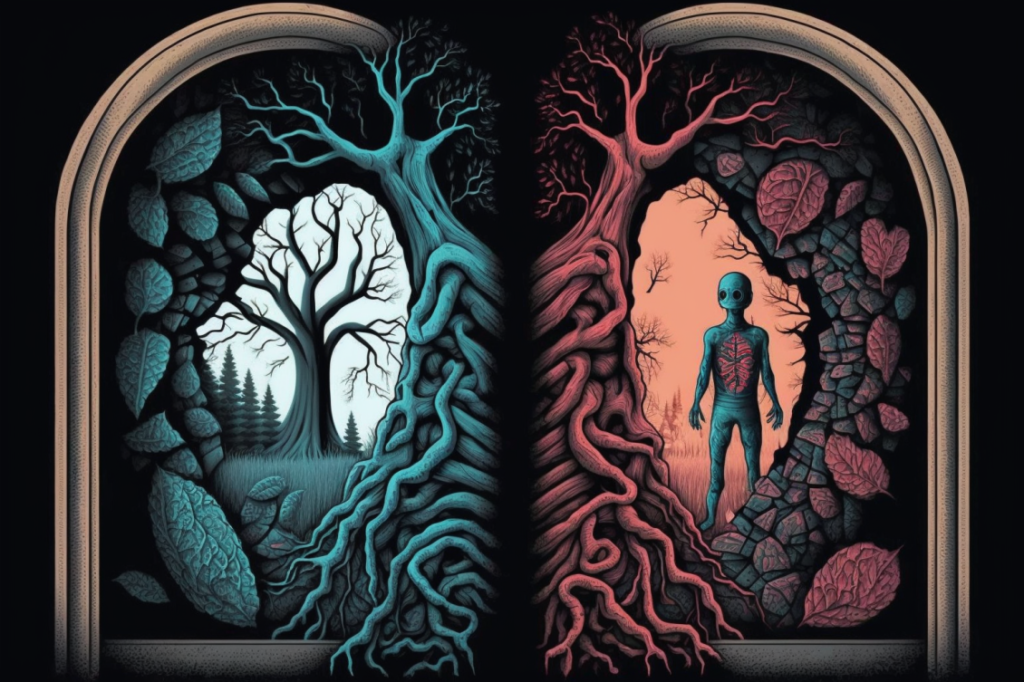
Intro: Understanding the Differences Between Long-Term vs Short-Term Relationships
Relationships come in all shapes and sizes. Some people are looking for lifelong companionship, while others prefer the excitement of a shorter, more casual connection. In this guide, we’ll delve into the differences between long-term and short-term relationships, exploring the benefits, challenges, and key factors that set them apart. By understanding what each type of relationship entails, you can make more informed decisions about your love life.
Table of Contents
Defining Long-Term and Short-Term Relationships
What is a Long-Term Relationship?
A long-term relationship is one that is built to last, with both partners committed to each other’s growth, happiness, and well-being. These relationships often involve deep emotional bonds, shared life goals, and a strong sense of partnership.
What is a Short-Term Relationship?
Short-term relationships, on the other hand, are more casual and typically have a defined endpoint. These connections can be exciting and fun, providing opportunities for exploration and personal growth without the long-term commitment.
Key Factors that Differentiate Long-Term and Short-Term Relationships
Commitment and Investment
In long-term relationships, partners invest time, energy, and resources into building a life together. They work through challenges, grow together, and make decisions as a team. Short-term relationships often involve less commitment and investment, as the focus is on enjoying the present moment and not necessarily planning for a future together.
Emotional Connection
Long-term relationships are characterized by deep emotional connections that develop over time. Partners become intimately familiar with each other’s thoughts, feelings, and desires. Short-term relationships, while still emotionally significant, may not have the same level of depth or intimacy.
Communication Styles
Effective communication is essential in any relationship, but it tends to be more important in long-term connections. As couples navigate life’s challenges together, open and honest dialogue is crucial. In short-term relationships, communication may be less formal and more focused on enjoying each other’s company.
Future Goals and Expectations
In long-term relationships, partners often share common goals and expectations for the future. This can include things like marriage, children, or career aspirations. In short-term relationships, future planning may be less important or even non-existent, as the focus is on the here and now.
Key Takeaways
- Long-term relationships offer stability, security, and deep emotional bonding, while short-term relationships provide excitement, novelty, and personal freedom.
- Effective communication is essential in both types of relationships, although the focus may differ.
- To choose the right relationship type for you, consider your personal values, goals, and emotional needs.
- Both long-term and short-term relationships can be fulfilling and valuable, depending on your individual preferences and circumstances.
Benefits and Challenges of Long-Term Relationships
This section discusses the various advantages of being in a long-term relationship, such as increased emotional support, stability, and personal growth. Long-term relationships can foster a deep sense of trust and understanding between partners, allowing them to work together as a team and grow both individually and as a couple. The stability of a long-term commitment can also provide a sense of security, as partners work together to overcome challenges and navigate life’s ups and downs.
Stability and Security
One of the most significant benefits of a long-term relationship is the sense of stability and security it provides. Knowing that you have a partner who is committed to your well-being and happiness can be incredibly comforting.
Deeper Emotional Bonding
As partners spend more time together in a long-term relationship, they develop a deep emotional bond that can be incredibly fulfilling. This connection allows for genuine understanding, empathy, and support.
Shared Growth and Personal Development
In a long-term relationship, partners often grow and develop together. This can include learning from one another, overcoming challenges, and achieving personal and shared goals.
Potential Challenges and How to Overcome Them
Long-term relationships can face various challenges, such as stagnation, communication breakdowns, and external stressors. By maintaining open communication, prioritizing quality time, and actively working on personal and relational growth, couples can overcome these obstacles.

Benefits and Challenges of Short-Term Relationships
This section highlights the positive aspects of short-term relationships, including the opportunity for self-discovery, flexibility, and the chance to explore different types of connections. Short-term relationships can be a valuable experience for those who are unsure of their long-term goals or who simply want to enjoy the excitement of new connections without the pressure of commitment. These relationships allow individuals to learn about their own preferences and desires, helping them make more informed choices in the future.
Excitement and Novelty
Short-term relationships can offer excitement and novelty, providing fresh experiences and opportunities for exploration. These connections can be a great way to learn about oneself and others without the long-term commitment.
Personal Freedom and Flexibility
Short-term relationships often provide more personal freedom and flexibility, allowing individuals to focus on their personal goals and desires without needing to make sacrifices for a partner.
In a short-term relationship, you may have more time and energy to devote to your personal interests, hobbies, and career. This freedom can be refreshing and empowering, especially for those who value their independence.
Book Recommendation on Personal Freedom: The Four Agreements
Potential Challenges and How to Overcome Them
Short-term relationships can have their own set of challenges, such as misunderstandings, lack of commitment, and emotional vulnerability. To navigate these issues, it’s essential to maintain open communication, set clear boundaries, and manage expectations.
The Role of Communication in Long-Term and Short-Term Relationships
Effective Communication in Long-Term Relationships
Effective communication is crucial in long-term relationships, as it helps partners navigate challenges, express their needs, and maintain a deep emotional connection. This includes active listening, empathy, and constructive feedback.
Effective Communication in Short-Term Relationships
In short-term relationships, communication is still important, but it may be more focused on enjoying each other’s company and establishing boundaries. Open dialogue can help ensure both partners are on the same page and prevent misunderstandings.
Choosing the Right Type of Relationship for You
Deciding between a long-term and a short-term relationship is an important choice that depends on various factors such as personal values, relationship goals, emotional needs, and life circumstances. This section will provide a comprehensive guide on how to choose the right type of relationship for you, taking into consideration your unique situation and desires.
Assess Your Personal Values and Priorities
Personal Values: When choosing the right type of relationship, it’s essential to start by examining your own personal values and priorities. Ask yourself what you value most in a relationship, such as trust, loyalty, adventure, or personal growth. Understanding what’s most important to you can help guide your decision-making process.
Priorities: It’s also crucial to consider your current priorities in life. Are you focused on your career, traveling, or personal development? Or, are you looking for a stable partnership to build a life together? Reflecting on your priorities can help you determine whether a long-term or short-term relationship aligns better with your current goals and aspirations.
Evaluate Your Emotional Needs
Emotional Connection: Consider the level of emotional connection you desire in a relationship. If you’re looking for a deep, meaningful bond and the opportunity to grow together with a partner, a long-term relationship might be the right choice. On the other hand, if you prefer to explore a variety of connections and prioritize your independence, short-term relationships might be more suitable.
Security and Stability: Think about your need for security and stability in a relationship. A long-term partnership can provide a strong sense of support and consistency, while short-term relationships offer flexibility and the freedom to change. Determining your preference for stability or change can help you choose the type of relationship that best fulfills your emotional needs.
Reflect on Your Relationship History
Past Experiences: Reflect on your past relationship experiences to identify patterns and preferences. What have you learned about yourself through your previous connections? Did you thrive in long-term relationships, or did you find them stifling? Conversely, were short-term relationships fulfilling, or did they leave you craving deeper connections? By examining your history, you can gain valuable insights into the type of relationship that suits you best.
Lessons Learned: Consider the lessons you’ve learned from past relationships, both positive and negative. Use these insights to inform your decision about the type of relationship you want to pursue. If you’ve experienced growth and satisfaction in long-term relationships, this might be the right path for you. However, if you’ve discovered that short-term connections better align with your needs and values, embrace that path moving forward.
Communicate with Potential Partners
Open and Honest Dialogue: When exploring a new relationship, it’s crucial to engage in open and honest communication with your potential partner. Discuss your expectations, values, and goals to ensure you both share a similar vision for the relationship. Transparency and clarity can help you make the best decision for both you and your partner.
Compatibility: Consider your compatibility with a potential partner in terms of values, goals, and emotional needs. This can help you determine whether a long-term or short-term relationship is the right choice. While opposites can attract, sharing common values and goals can lead to a more satisfying and successful relationship in the long run.
In conclusion, choosing the right type of relationship depends on a variety of factors, including personal values, priorities, emotional needs, and relationship history. By reflecting on these aspects and engaging in open communication with potential partners, you can make an informed decision about the best type of relationship to pursue, be it long-term or short-term. Remember that your needs and desires may evolve over time, so it’s essential to continually reassess your relationship preferences and make choices that align with your current goals and values
Conclusion: Finding the Right Balance in Your Love Life
Both long-term and short-term relationships have their unique benefits and challenges. By understanding the key differences between these relationship types, you can make informed decisions about your love life and find the connection that best aligns with your personal values and desires.
FAQ: Long-Term vs Short-Term Relationships
Can a short-term relationship turn into a long-term one?
Yes, short-term relationships can evolve into long-term relationships if both partners share mutual feelings, goals, and a desire for commitment.
How do you know if a relationship is meant to be long-term or short-term?
Pay attention to your feelings, your partner’s actions, and the level of commitment and investment from both parties. Open communication about expectations and desires can also help clarify the nature of the relationship.
Do long-term relationships always have to lead to marriage?
No, long-term relationships do not necessarily need to lead to marriage. Some couples choose to remain committed without taking the step of marriage, and that is a valid and fulfilling choice.
How do you maintain excitement and novelty in a long-term relationship?
To maintain excitement and novelty in a long-term relationship, try new activities, maintain open communication, and make an effort to surprise and delight your partner. Regularly expressing gratitude and appreciation can also help keep the spark alive.
How do you end a short-term relationship gracefully?
To end a short-term relationship gracefully, be honest, respectful, and empathetic. Communicate your feelings and reasons for ending the relationship clearly, and give your partner an opportunity to share their perspective.
How long does a short term relationship last?
Short-term relationships can vary in duration but generally last a few weeks to a few months.
Is 1 year a long-term relationship?
While a 1-year relationship might be considered long-term for some, others may see it as a transitionary period between short-term and long-term.
Is 6 months a short-term relationship?
Six months can be considered a short-term relationship, but it depends on individual perspectives and expectations.
Are short-term relationships healthy?
Short-term relationships can be healthy if both partners have clear expectations and communicate openly.
What are the hardest months in a relationship?
The “hardest months” can vary between relationships, but common milestones include the end of the “honeymoon phase” and the first year of commitment.
What month do most couples break up?
Breakups can happen at any time, but some studies suggest that breakups peak in certain months, such as March and December.





